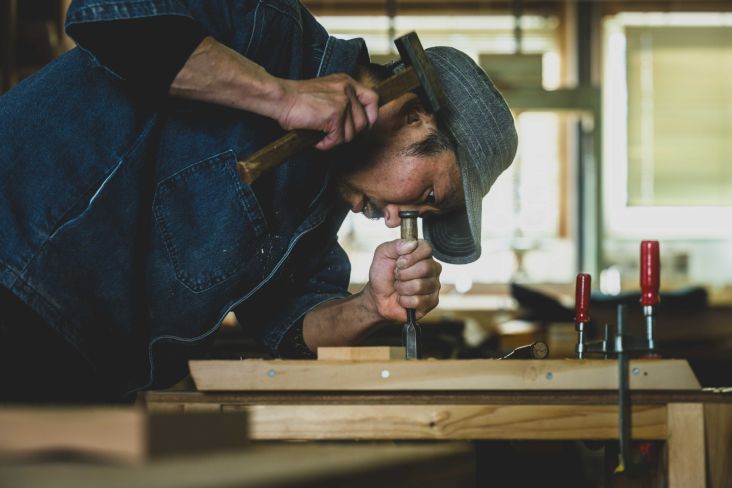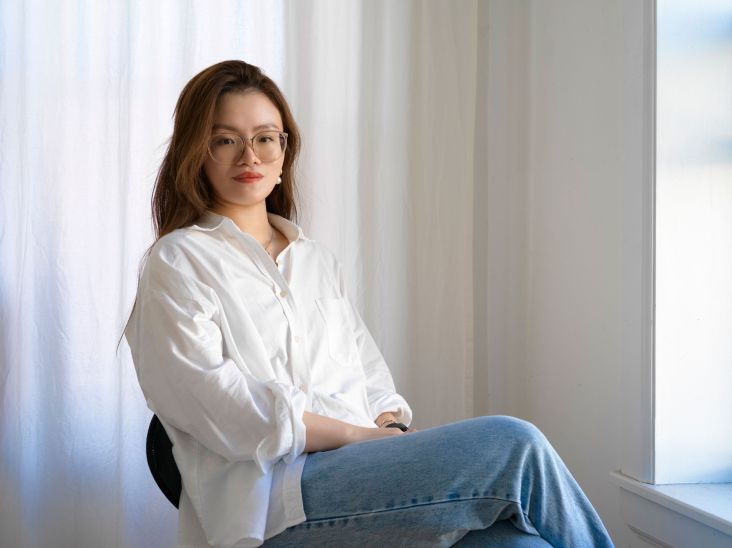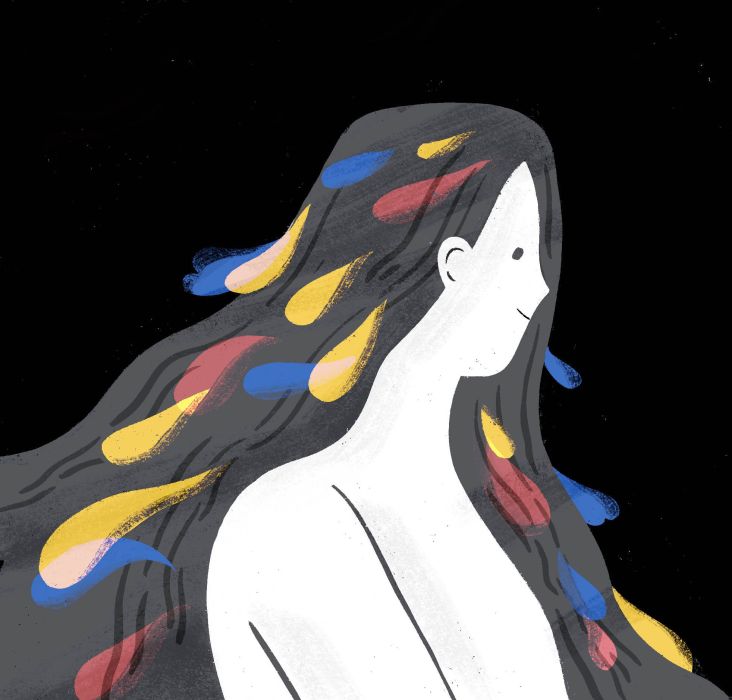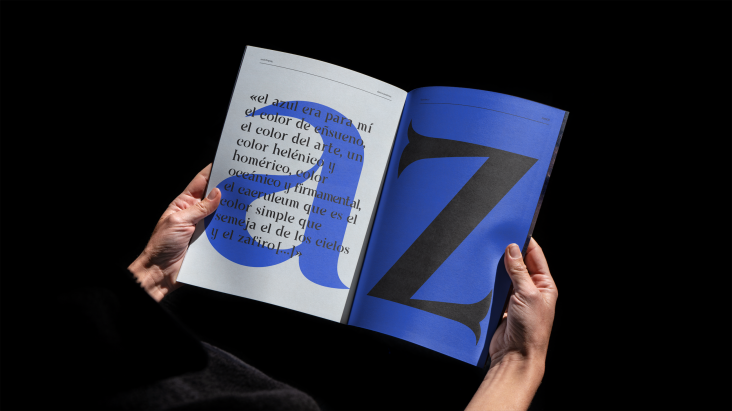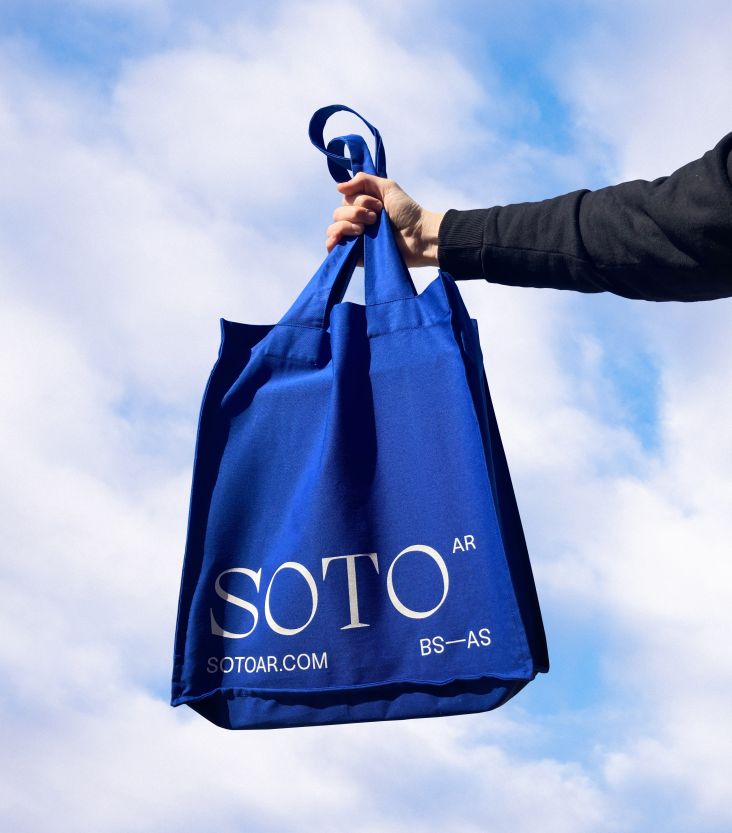Somerset House art show revisits the last 50 years through the prism of horror
An imaginative new art show points to how the horror genre influences rebellious artists and helps us to understand a chaotic world.
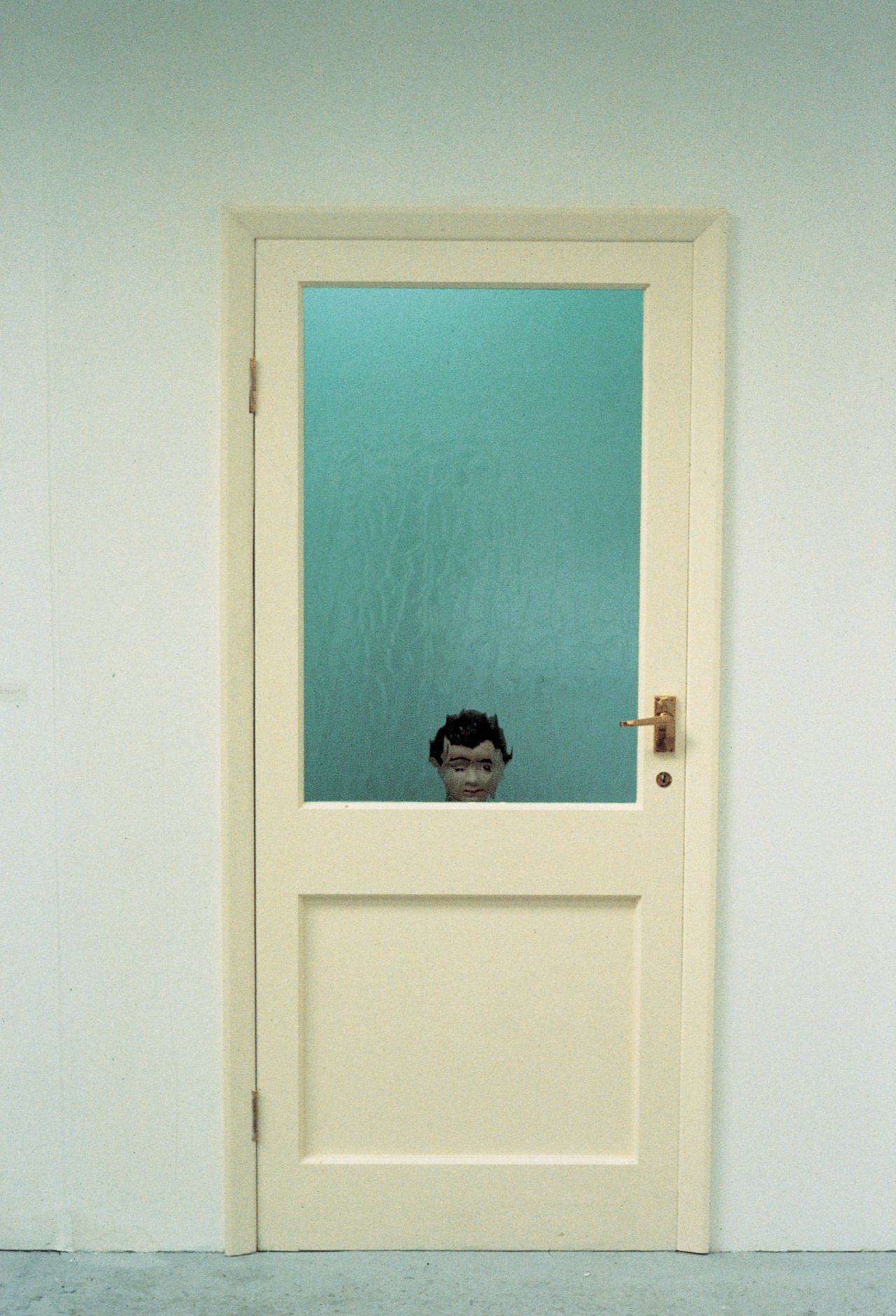
Kerry Stewart, The Boy From The Chemist Is Here To See You, 1993. © Kerry Stewart. Courtesy of the artist
Whether or not you're a fan of the horror genre, the ideas contained within it have been a major influence on the last 50 years of creative rebellion. That's the theory, at least, expounded by a new exhibition hosted by London's Somerset House.
Co-curated by BAFTA nominated filmmakers Iain Forsyth and Jane Pollard, and Somerset House's senior curator, Claire Catterale, Horror Show!: A Twisted Tale of Modern Britain looks beyond horror as a genre and instead interprets it as a reaction to troubling times.
In this way, the last five decades of British history are recast as a story of cultural shapeshifting, told through some of our most provocative artists. From 1970s punk to modern-day witchcraft, the aim is to highlight how the anarchic alchemy of horror – its subversion, transgression and the supernatural – helps us make sense of the world.
Featuring over 200 artworks and culturally significant objects, this landmark show tells a story of the turbulence, unease and creative revolution at the heart of the British cultural psyche in three acts: Monster, Ghost and Witch.
Each act interprets a specific era through a classic horror archetype lens in a series of thematically linked artworks. These are accompanied by a soundtrack featuring Bauhaus, Barry Adamson and Mica Levi.
Act one: Monster
Artworks featured in the first act, Monster, include punk artist Jamie Reid's Monster on a Nice Roof (1972), which paints a visionary picture of the dark skies gathering over Britain as the unravelling of its Empire draws to a close. Elsewhere, Chila Burman's If There is No Struggle, There is no Progress: Uprising (1981) and Helen Chadwick's Allegory of Misrule (1986) refigure social discontent and anxiety in the image of horror as the socio-political and monstrous collide.
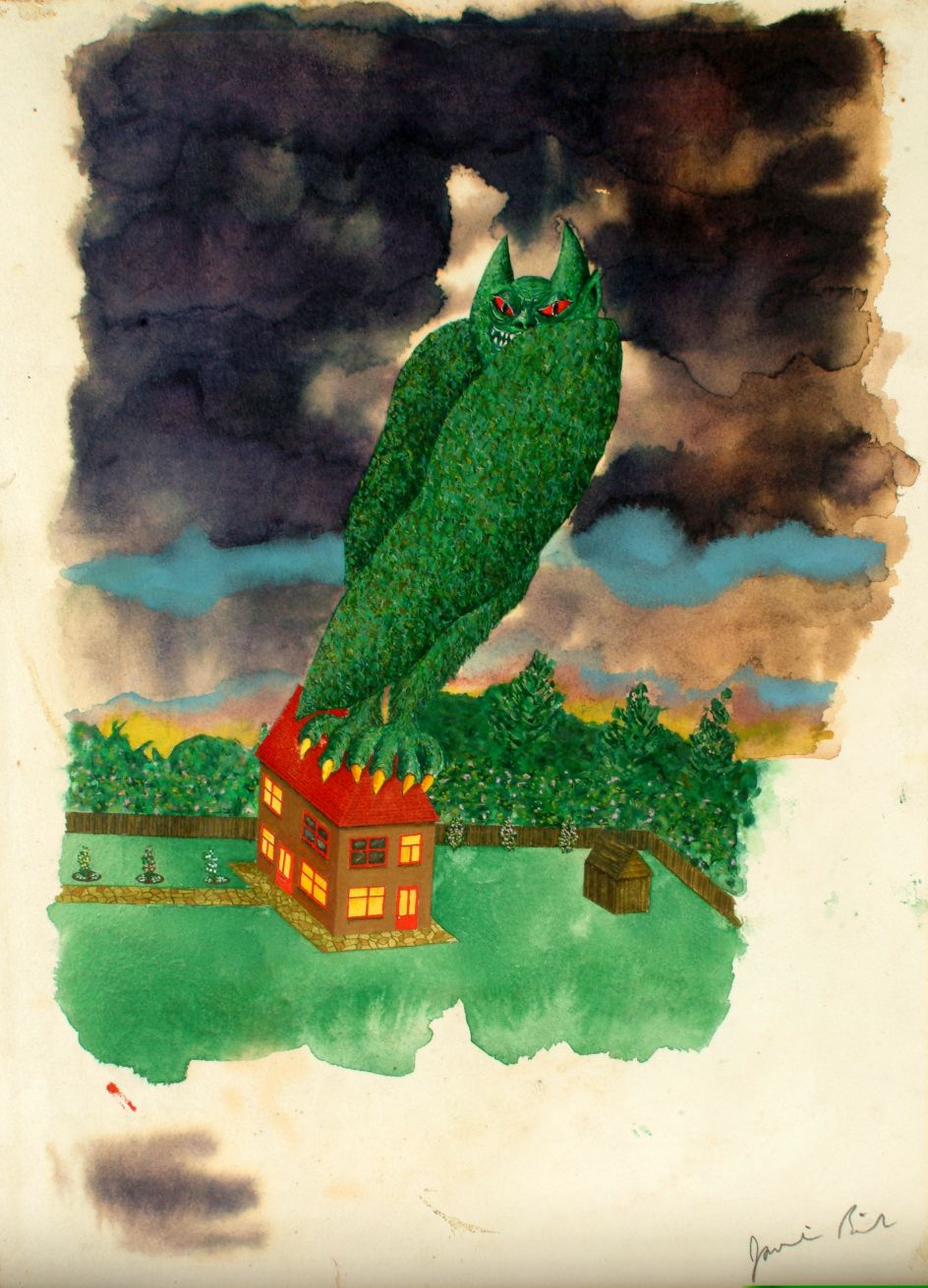
Jamie Reid, Monster On a Nice Roof, 1972. © Jamie Reid. Courtesy of John Marchant Gallery
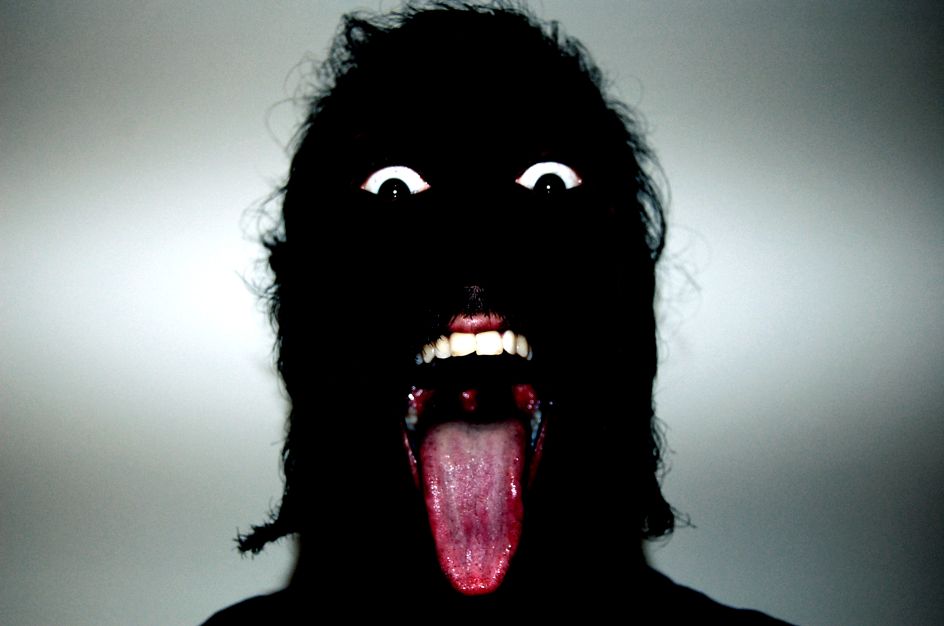
Harminder Judge, Self Portrait (after Kali & Gene), 2009. © Harminder Judge
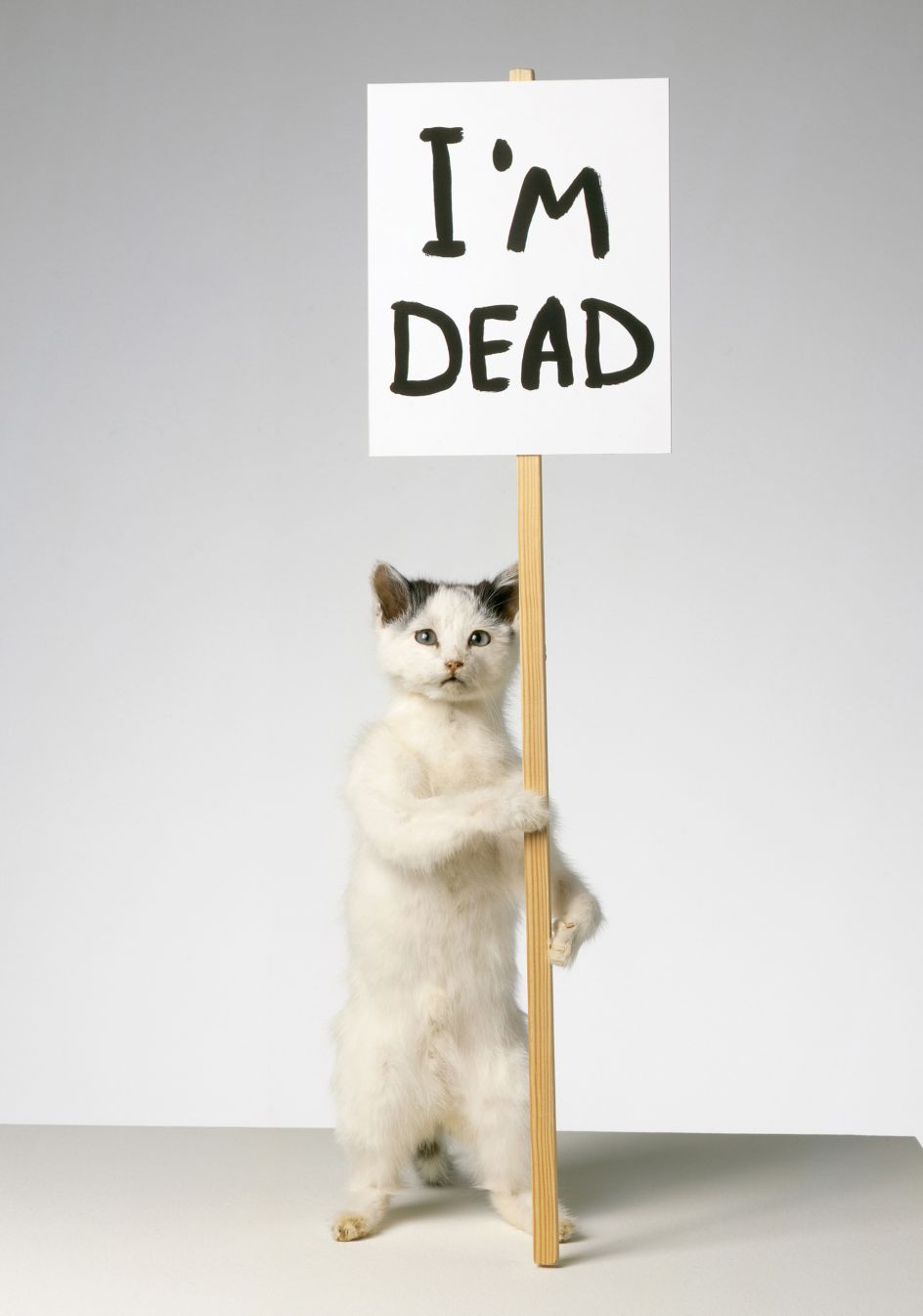
David Shrigley, I'm Dead, 2007. © David Shrigley. Courtesy the artist and Stephen Friedman Gallery, London.
Also appearing are Guy Peellaert's David Bowie, Diamond Dogs (1974) and nightlife photography by Derek Ridgers. There are modern works, too, including Pam Hogg's new Exterminating Angel (2021) and art by Gareth Pugh and the late Leigh Bowery. Plus, Noel Fielding's Post-Viral Fatigue (2022) shows how horror imagery resonates in the Covid era, and a newly commissioned mural by Matilda Moors sees the walls dramatically clawed at by a monstrous hand.
Act two: Ghost
The show's second act, Ghost, marks the shift from the 1980s to the 90s and early 00s. It traces an unsettling path through to the global financial crisis of 2008, at the dawn of a digital age of faceless audiences and invisible cyber wars.
Derek Jarman's last feature and magnum opus, Blue (1993), evokes the artist's final days, marrying comforting connection with disconnection from the world, and warmth with coldness, as he poetically narrates his approach towards death. Meanwhile, a stunning sound installation from Nick Ryan highlights the strange frequencies of an age that saw the emergence of trance music and sampling machines, turning visitors into spectators, spectacle and a ghost in the machine.
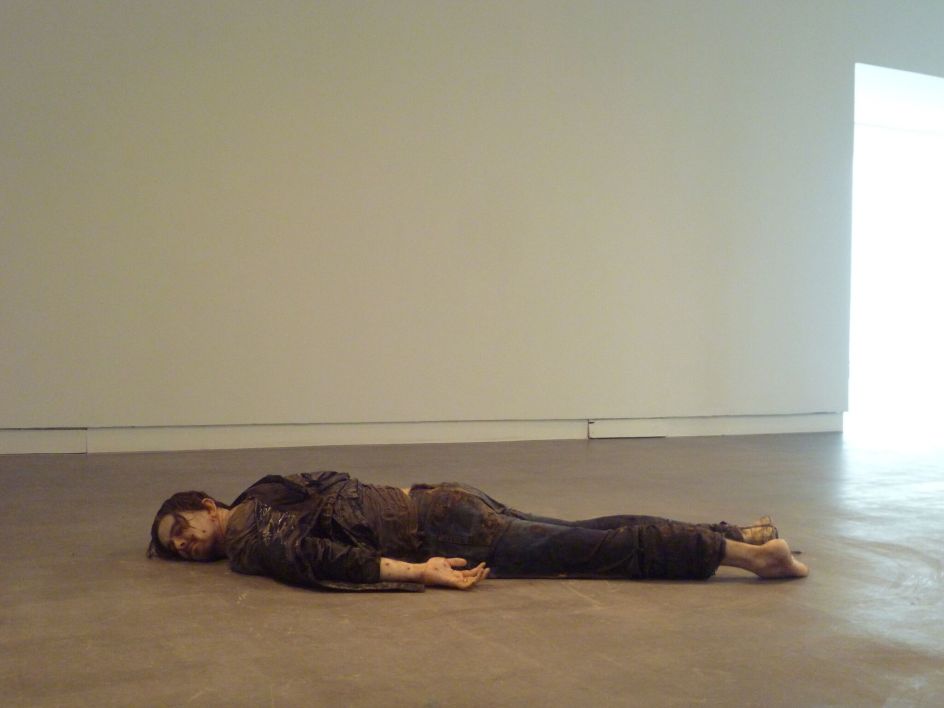
Jeremy Millar, Self Portrait as a Drowned Man (The Willows) , 2011. © Jeremy Millar. Courtesy of the artist.
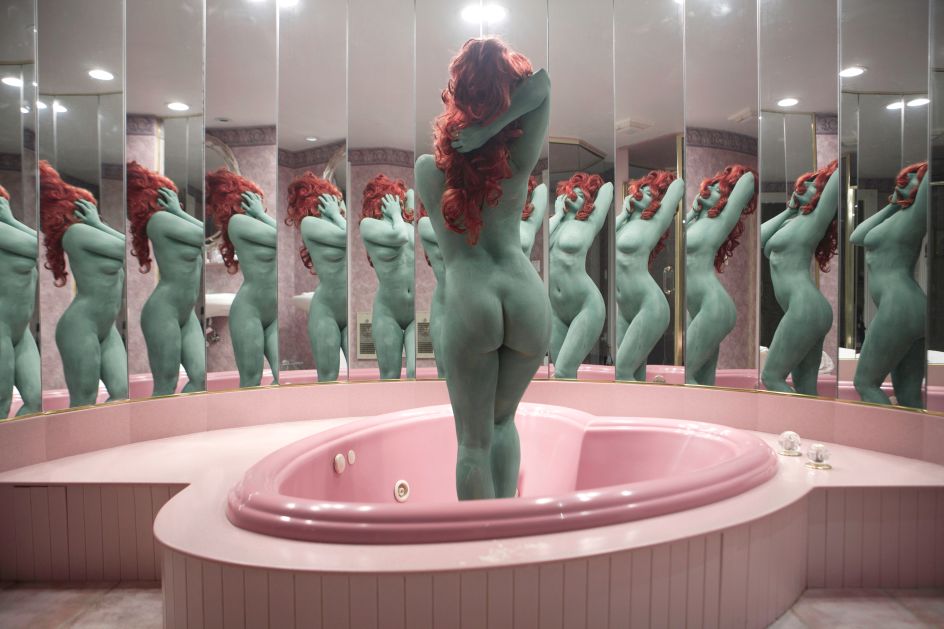
Juno Calypso, The Honeymoon Suite, 2015. © Juno Calypso. Courtesy of the artist
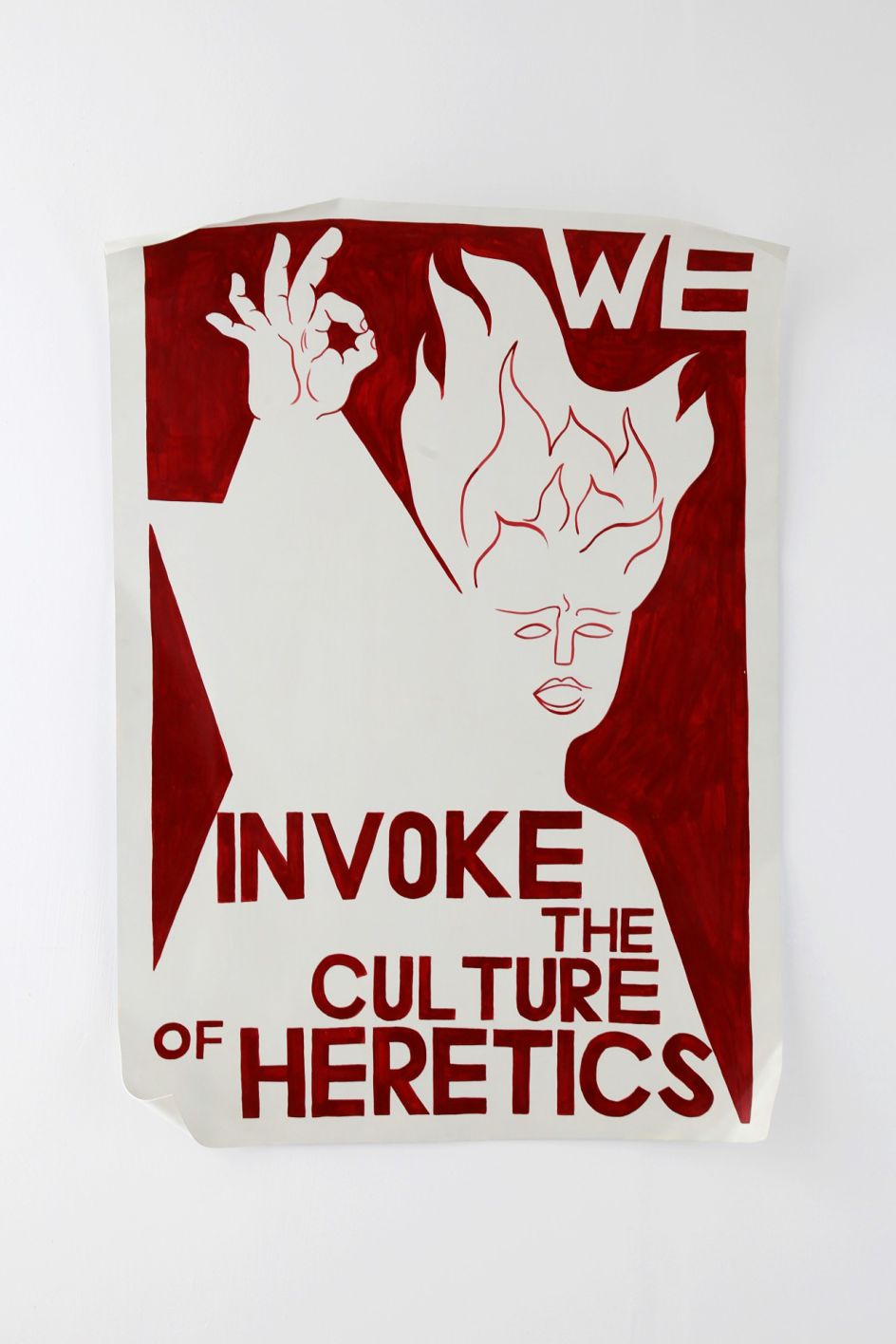
Anna Bunting - Branch, W.I.T.C.H. (“We Invoke the Culture of Heretics”) , 2015 . © Anna Bunting-Branch
Elsewhere, works from Jeremy Millar and Gavin Turk unsettle, with a paradoxical clash of ghostly presence and absence. While Cornelia Parker's map, scorched with a heated meteorite fragment, tells a tale of apocalypse at the end of the Millennium.
Act three: Witch
The exhibition's third and final act, Witch, focuses on the period stretching from 2008's financial crash until the present day. It celebrates the emergence of a younger generation and a hyper-connected community, embracing a new era of integration and equality.
Linder's The Goddess Who has Sky as Hair (2019) and Zadie Xa's Three Thousand and Thirty High Priestess of Pluto (2016) forgo the patriarchal occult and druidism of old in favour of new sorcery rooted in ecology and bodily autonomy.
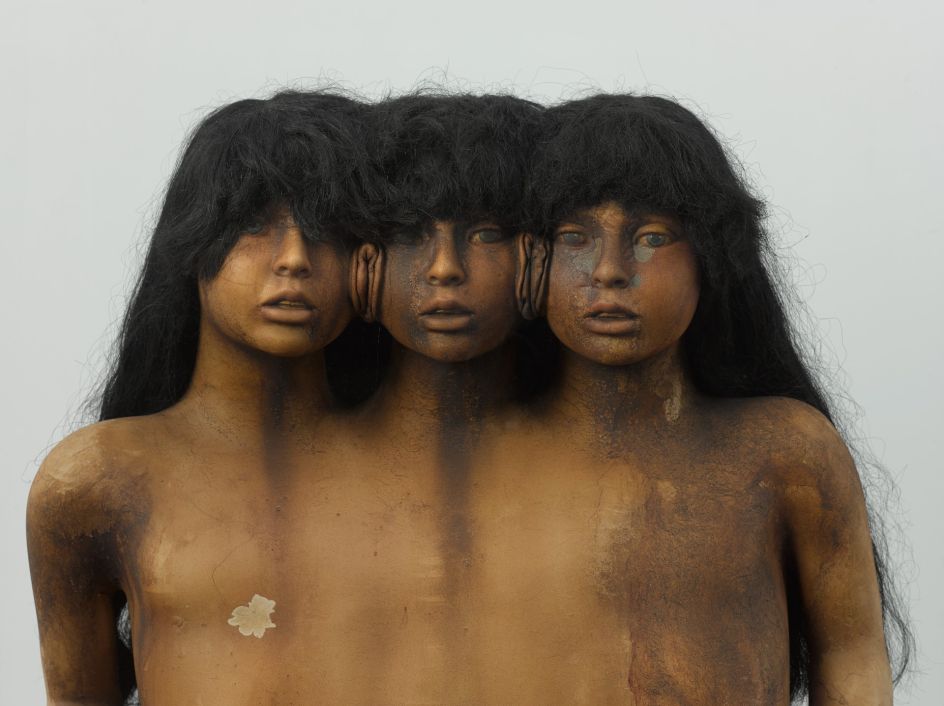
© Jake and Dinos Chapman, Return of the Repressed3.
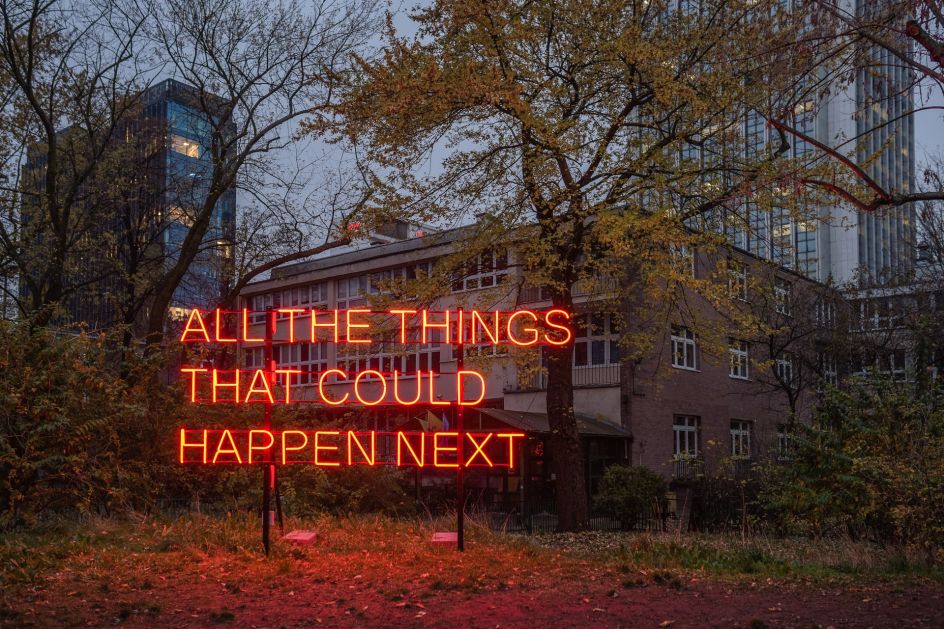
Tim Etchells, Fade to Black. Images courtesy of the artist © Paweł Ogrodzki
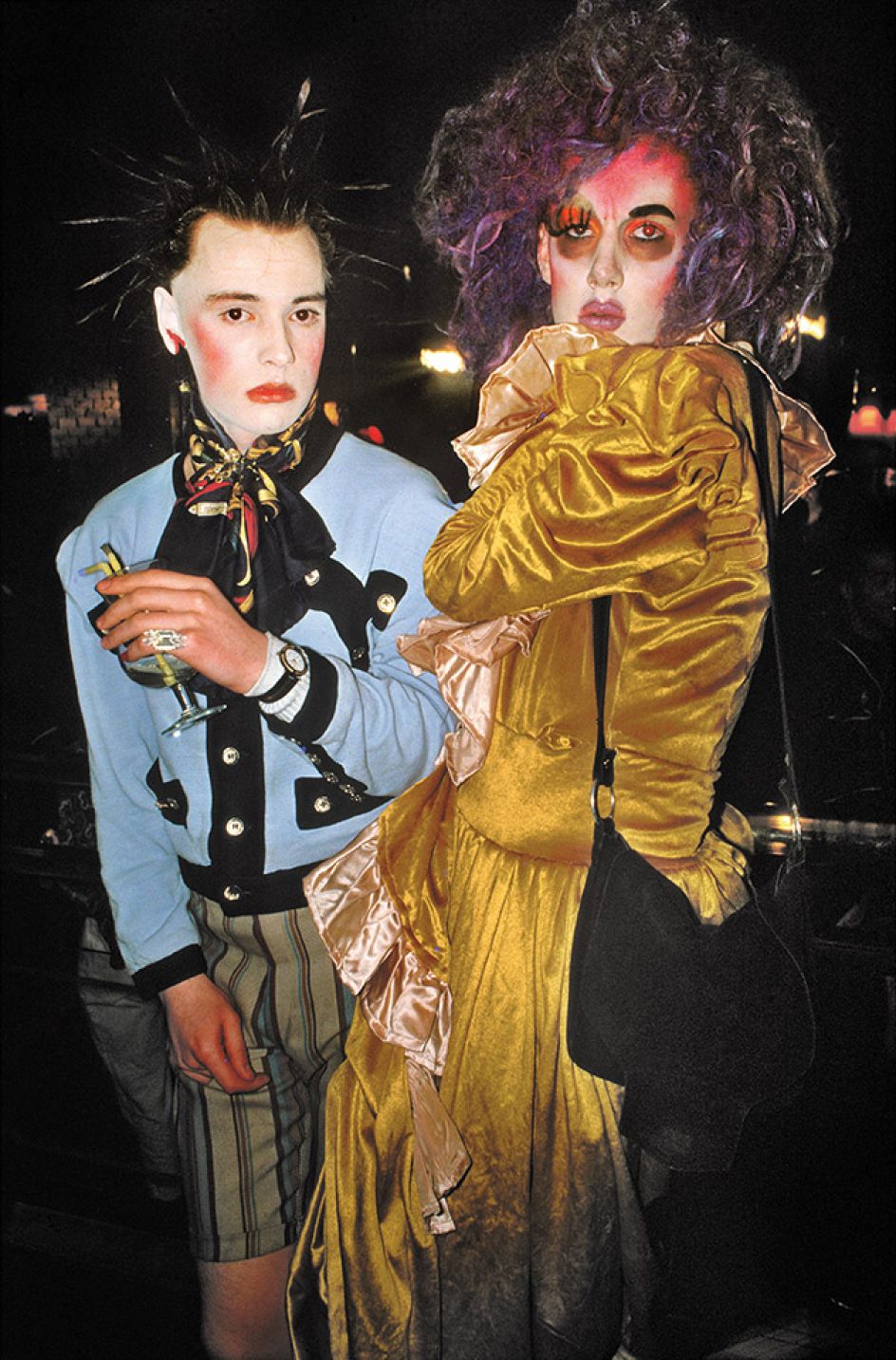
Derek Ridgers, Trojan & Mark At Taboo, London, 1986. © Derek Ridgers. Courtesy Of Derek Ridgers Editions.
Also on display are newly commissioned works from Somerset House Studios artists Tyreis Holder, Col Self, Linda Stupart and Carl Gen, and Turner Prize winner Tai Shani's The Neon Hieroglyph (2021), inspired by the story of flying witches on the Italian island of Alicudi. The sculpture, seen for the first time in the UK, can be seen alongside a specially commissioned audio installation by Gazelle Twin.
Deep dive
Monster, Ghost and Witch culminate in immersive installations, combining newly commissioned work, large-scale sculpture, fashion and sound installation, with each chapter signed off with a neon text-work by Tim Etchells.
It all adds up to an intoxicating deep dive into the counter-cultural, mystic and uncanny, with the signature design of the three acts courtesy of architects Sam Jacob Studio and Grammy-winning creative studio Barnbrook.
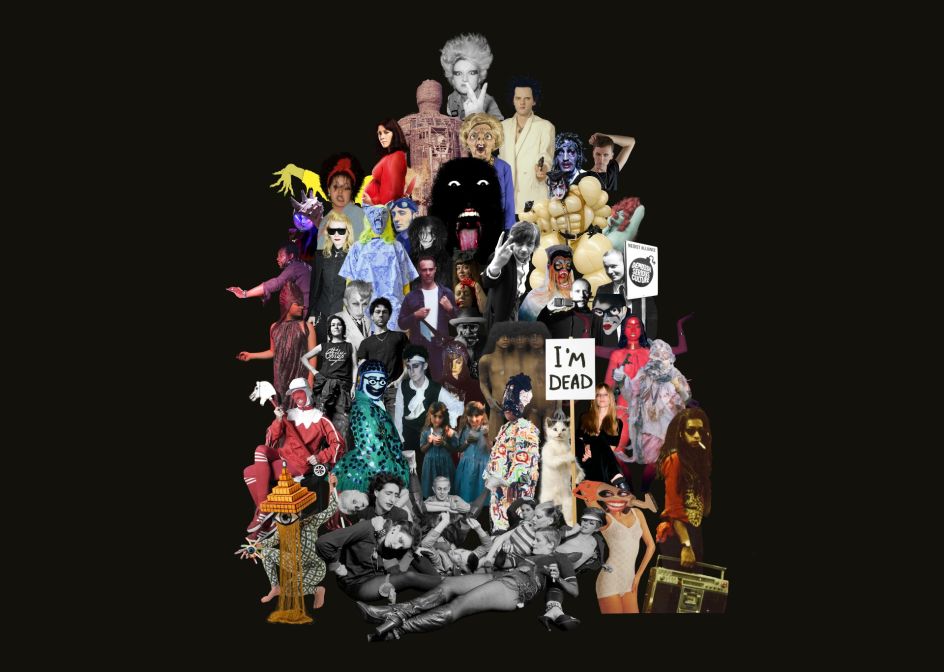
The Horror Show! © Barnbrook; Somerset House (1)
The Horror Show: A Twisted Tale of Modern Britain takes place at Somerset House, Strand, London WC2R 1LA from 27 October to 19 February 2023 (closed Mondays). Tickets cost £16.50/£12.00 concessions. The exhibition will have an accompanying programme of talks and events, full details of which will be announced soon. For more information visit the Somerset House website.




 by Tüpokompanii](https://www.creativeboom.com/upload/articles/58/58684538770fb5b428dc1882f7a732f153500153_732.jpg)


 using <a href="https://www.ohnotype.co/fonts/obviously" target="_blank">Obviously</a> by Oh No Type Co., Art Director, Brand & Creative—Spotify](https://www.creativeboom.com/upload/articles/6e/6ed31eddc26fa563f213fc76d6993dab9231ffe4_732.jpg)








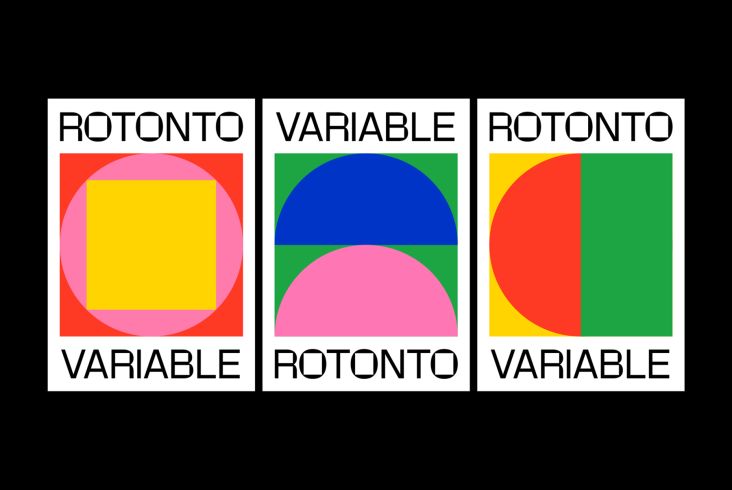
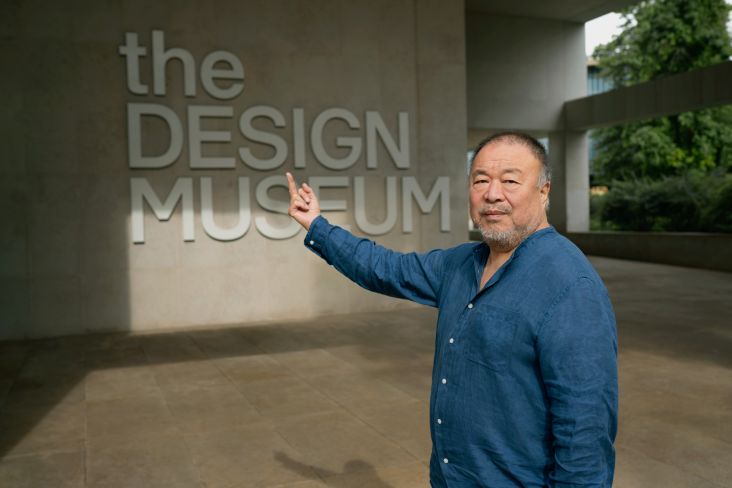
](https://www.creativeboom.com/upload/articles/d3/d3d5436e37126a9065227e6e0d3f2d50c79604cc_732.jpg)
